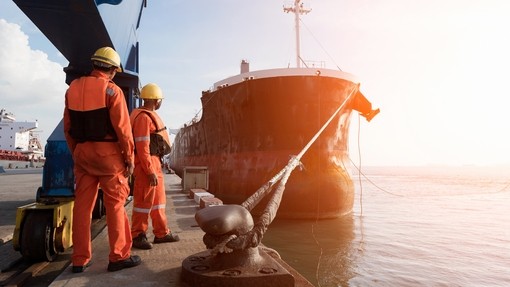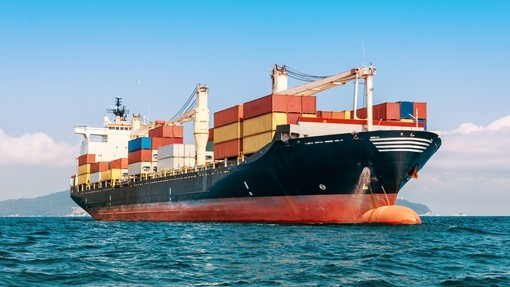Supreme Court finds cargo interests liable for general average contribution arising out of piracy incident
Herculito Maritime Ltd & others -v- Gunvor International BV & others (MT Polar) [2024] UKSC 2

Supreme Court finds cargo interests liable for general average contribution arising out of piracy incident
This general average dispute arose out of a piracy incident in the Gulf of Aden in October 2010, whereby the vessel was not released for ten months and only after a ransom was paid. The following issues arose: (i) whether the additional war risks and Gulf of Aden clauses in the voyage charterparty were incorporated into the bills of lading and, if so; (ii) whether their effect was to exclude the bill of lading holder’s liability for cargo’s contribution in general average in case of piracy risk.
The Supreme Court has found that there was no agreement, whether in the charterparty or bills of lading, precluding the Owner’s right to claim the general average (GA) contribution from cargo interests.
While the context was piracy risks in the Gulf of Aden, which risk has reduced significantly in recent years, this decision is a significant one for those affected by and advising on war risks and other contract of carriage issues arising out of the Red Sea attacks on commercial shipping, as well as the Russia/Ukraine war.
The background facts
This was a voyage for the carriage of a cargo of fuel oil from St Petersburg to Singapore in September/October 2010. The terms of the contract were contained in a fixture recap that incorporated the BPVOY standard form with some amendments and also some additional clauses.
The freight rates were agreed on the basis that the voyage would be ‘via Suez with the Suez costs to be for Owners’ account.’
Clause 30.2 of the BPVOY form provides for all bills of lading issued under the charterparty to be deemed to contain War Risks clauses. Clause 39 is a detailed War Risks Clause that included “acts of piracy” as a war risk. The additional clauses in the fixture recap included a Gulf of Aden clause which stated in material terms that:
“Any additional insurance premia (including, but not limited to, those in respect of H&M, crew, P&I kidnap risks and ransoms), crew bonuses (which to be in accordance with the international standard) shall be for chrtrs account. Max USD 40,000 for charterer’s account for any additional insurance premium except for crew bonus which to be max USD 20,000 for charterers account.”
There was also an additional war risks clause which provided that any additional premia payable by the Owner in respect of war risks were for the Charterer’s account.
Consequently, the Charterer was obliged to pay for the additional war risks and kidnap and ransom (K&R) cover up to a maximum of US $40,000, with the Owner liable for any balance over and above that.
The bills of lading provided for general average (GA) to be settled according to the York-Antwerp Rules (YAR) - five bills referred to YAR 1974, the sixth to YAR 1994. The wording in the bills of lading incorporating charterparty terms was general but wide.
The cargo was insured on Institute Cargo Claims (A) terms, which exclude cover for war risks but with a carve-out for piracy. The H & M and war risks insurance excluded the Gulf of Aden area. However, the Owner purchased insurance cover for the vessel’s proposed transit through the Gulf of Aden and also took out K&R insurance for a single voyage through the Gulf of Aden. This provided cover against the payment of ransom as a result of piracy up to a limit of US $5 million.
As a result of the additional cover, any ransom up to the limit of US $5 million would be reimbursed by the K&R underwriters. The combined premia for this K&R and additional war risks cover fell just below the US $40,000 stated in the Gulf of Aden clause. The Owner paid the premium but was reimbursed by the Charterer.
While transiting the Gulf of Aden on 30th October 2010, the vessel was seized by Somali pirates and was not released until 26 August 2011, after a ransom payment of US $7.7 million was paid, funded by the K&R and war risks underwriters.
GA was declared and, in due course, the GA adjustment concluded that approximately 60% of the ransom payment was due to the Owner from cargo interests. Cargo interests contended that the Owner could only recover for any ransom under the terms of the insurance policies.
Arbitration
The tribunal found that the war risks and Gulf of Aden clauses in the charterparty were effectively incorporated into the bills of lading. Those clauses allocated risk for piracy in the Gulf of Aden in the form of a ‘code’ whereby the Owner would look exclusively to the insurance cover, and not to the Charterer, for any losses resulting from piracy. The tribunal further found that this ‘code’ was incorporated into the bill of lading such that the Owner had agreed not to look to the bill of lading holder either in respect of such losses.
The tribunal did not think it was relevant whether incorporation of the additional clauses into the bills of lading meant that cargo owners were obliged to pay the insurance premia. However, if necessary, the tribunal would have manipulated the word ‘charterer’ to mean ‘lawful holders of the bill of lading’ so as to achieve this result.
The lower court decisions
The Commercial Court agreed that the relevant charterparty provision had been incorporated into the bills of lading. However, the bill of lading holder was not obliged to pay the extra premium and manipulation of the clause’s wording was not appropriate. Furthermore, while the parties had agreed that the Owner would look to insurers and not to the Charterer for indemnification of such losses, the Owner was not precluded from recovering a contribution from the bill of lading holders (as opposed to the Charterer).
The Court of Appeal dismissed the appeal from this decision. It agreed that the relevant charterparty clauses were prima facie incorporated into the bills of lading but that they should not be manipulated so as to impose a liability on the bill of lading holder to pay the insurance premia. Furthermore, there were no clear express words to rebut the presumption that the Owner did not intend to abandon its right to a contribution in GA from cargo interests.
The Court of Appeal added that in reality, this was a case where both parties were insured against the risk of piracy and each set of insurers should bear its proper share of the risk that it had agreed to cover. Construing the bills of lading to exclude a claim by the Owner would mean that the loss was borne entirely by their insurer and cargo owners’ insurer would escape liability for a risk that they had agreed to cover.
The Supreme Court decision
The Supreme Court has unanimously dismissed the appeal. It identified four key issues requiring consideration. In summary:
Was there an insurance fund or code in the charterparty?
The Supreme Court said no, there was not.
Whether or not the parties had agreed an insurance code or insurance fund was a matter of contract. It involved implying a term to this effect and such a term would only be implied if it was necessary because the contract would lack commercial or practical coherence without it. That was not so here.
Although not decisive, most cases in which the Court had found such an insurance fund to exist involved joint names insurance (for example, the Ocean Victory [2017] UKSC 35). Here, there was no such joint names insurance.
The only non-joint names insurance case in which the Court found there was a ‘complete code’ (as opposed to an insurance code) was The Evia (No. 2) [1983] AC 736 (HL). However, the terms of the Baltime charterparty in that case, particularly the war risks regime, were materially different to the charterparty terms in this case and so it could be distinguished.
In particular here, the charterparty provided for the voyage to be via Suez notwithstanding the well-known and foreseeable risk of piracy and seizure for ransom in the Gulf of Aden at that time and the parties had agreed in detail the terms on which the vessel was to transit the Gulf of Aden. The Owner could not, therefore, argue that these were war risks for the purposes of clause 39. Having agreed the vessel route and applicable terms for the transit, the Owner or master could not then change route without there being a change in risk and there was no change in the piracy risk from when the charterparty was concluded.
The Supreme Court also emphasised that GA was a common law right and a shipowner could not be taken to have given up such a valuable right without clear and express terms to this effect. Furthermore, there was no principle exempting a charterer from liability for breach of contract or in GA merely because they had provided the funds for the owner to insure itself against the relevant loss.
There was, therefore, no insurance code in the charterparty which could be incorporated into the bills of lading. Nonetheless, the other issues having been fully argued and being of general importance, the Supreme Court ruled on them as follows.
Were all material parts of the war risk clauses incorporated into the bills of lading?
There was a prima facie incorporation of clause 39 and the liberties given to the Owner under that clause because they were clearly relevant to the contract of carriage. They related directly to the vessel’s route and they protected the Owner in relation to the voyage war risks.
The parties’ intention must have been to incorporate the whole of the relevant war risk regime in the charterparty rather than to do so incompletely. Therefore, in order to give effect in the bills of lading to the agreed allocation of risk in relation, in particular, to transiting the Gulf of Aden, the entirety of the additional Gulf of Aden and the War Risk clauses should be regarded as incorporated in the bills of lading so as to be read alongside clause 39, as they would be in the charterparty.
Did the incorporated war risks clauses preclude the Owner from claiming its GA losses from cargo interests?
If the wording was not manipulated, then only the Charterer and not the bill of lading holder was obliged to pay the insurance premia. Any insurance code, if it existed, would consequently not apply vis-a-vis the bill of lading holder.
Furthermore, there was nothing in the charterparty to indicate that the charterer paid the insurance premia on behalf of the bill of lading holder. This was a strictly bilateral agreement and the Charterer paid the insurance premia to protect its own interest in ensuring proper performance of the charterparty.
Should the wording of the clauses allocating responsibility for the payment of insurance premia be manipulated to substitute ‘Charterers’ with ‘Bill of lading holders’?
No, because manipulation of the wording was not necessary to make the wording fit the bill of lading. The Gulf of Aden and the War Risk clauses worked perfectly well in the context of the bills of lading as a record of the terms upon which the Owner had agreed to transit the Gulf of Aden.
Further, and as highlighted already by the Court of Appeal, such manipulation was inappropriate because the bill of lading holders were unlikely to have accepted a potential liability to pay unknown and unpredictable amounts. Uncertainty surrounded the apportionment of liability for paying the insurance premia if there was more than one bill of lading holder and also rights of recourse both vis-à-vis the Owner and also among the different bill of lading holders.
Comment
The Supreme Court has usefully clarified whether and when a contract of carriage will be construed as incorporating an implied ‘insurance fund’ whereby the parties can only recover their losses from their respective insurers and not each other. While not a decisive factor, it would appear that whether the insurance is in the joint names of the parties is likely to be a significant one. However, all will depend on the terms agreed in the contract of carriage. Therefore, those entering into such agreements should consider carefully whether the terms being negotiated accurately reflect the parties’ intentions.
War risks provisions and related insurance arrangements are particularly topical in the light of the Red Sea attacks and the Russia/Ukraine conflict. The Supreme Court has highlighted the limits on an owner’s entitlement to refuse to follow an agreed voyage route because of perceived war risks if it is deemed to have expressly accepted those risks at the time of contracting. Whether there is an increased or different level of risk such as to trigger the war risks provisions and to entitle the owner to exercise its liberties under a clause such as clause 39 will be dependent on the circumstances in each case.






